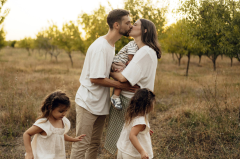Why bother with relationships? It’s all too hard. Perhaps it’s simpler to live in solo seclusion? Realistically, everyone needs someone, sometime. Even incredibly independent off-the-grid preppers aren’t islands. Humans thrive in tribes, whereas extended isolation increases mental and physical health issues. However, unharmonious relationships also wreak havoc in our life. Difficult dynamics not only impact those involved but all those around, including impressionable children. Cultivating skills such as communicating clearly, listening compassionately and resolving conflict effectively are priceless for positive relations. Unless blessed with exemplary role models, most of us are never taught how to have empowering relationships with ourselves and others. Dealing with difficult relationships requires us to deal with our inner issues also. Once we are aware, accountable and willing to take action, we can turn relationship woes into wins.
Mateship medicine
When we need a pickup, popping around to see someone supportive may be better than popping a pill, according to research. Keeping good company is good for us, according to a slew of scientific studies as follows:
- We have a 50 per cent increased chance of survival with strong social ties, according to a 2010 meta-analytic review, Social Relationships and Mortality Risk. Another 2017 meta-analysis, The Longevity of Social Connections, established that a supportive social network increased longevity.
- Healthier lifestyle choices such as sound nutrition and regular exercise are bolstered in supportive relationships, according to the study Healthy Behaviors by Repetti, Taylor and Seeman.
- High-quality social relationships reduce the risk of cardiovascular disease, concluded the study Social Relationships and Health: A Flashpoint for Health Policy by William T. Reichman and Michael D. S. Myers.
- Faster cognitive decline was linked to loneliness in a systematic review and meta-analysis by Cathy Cresswell and Sarah E. Malley called Loneliness and Cognitive Functioning in Older Adults.
- Relationships assists stress resilience through emotional and practical support, as found in the 2015 study The Role of Social Relationships in Psychological Resilience, by Richard J. Davidson and Jon Kabat-Zinn.
- Happier marriages support better health, according to Marital Satisfaction and Health: The Role of Support and Stress by John E. Schulenberg and Julie A. E. L. Beck.
- Firm friendships are associated with lower levels of anxiety, depression and stress, according to The Impact of Friendships on Mental Health: A Review of Recent Findings by Laura J. Ellis and Dan P. Brown.
We need to talk
How do you know if your relationship is on the rocks? Poor communication, connection, consideration and effort are major signs that a bond is breaking. If cracks aren’t addressed, they develop into major divides, separating people indefinitely. When a relationship isn’t working, it’s time to work on it, even if only to part amicably. Here are 10 red lights that halt relationship growth.
- Abusive, disrespectful or inconsiderate interactions
- Addiction leading to an inability to relate to others authentically
- Controlling or cruel behaviour
- Distorting the present through the filter of past pain
- Action or communication that is dishonest, ineffective, minimal or superficial
- Emotional and physical detachment
- Lack of accountability, appreciation, empathy, understanding and support
- Misaligned values
- Selfishness
- Unresolved conflict such as fundamental disagreements derailing one’s joy
Relationship patterns
It’s easy to blame externals when things go awry. Awareness of our contribution to a relationship rift by remaining receptive to feedback, introspective and accountable empowers us to become the change we want to experience. If we all had healthy, wholesome relationships, counsellors would be out of work. Nearly all of us have experienced personal or relationship trauma. This deeply impacts our assumptions, expectations and interpretations of relationships. What experiences marred your view of relationships? Respond to the following after deep reflection.
- How did your childhood caregivers influence your idea of relationships? Ponder if this is a true or distorted perspective.
- Have you perpetuated these patterns in your relationships?
- Write down detrimental traits your main childhood caregiver exhibited and the empowering alternative. For example: Weak — Strong
- Write down issues you experienced with past relationships.
- How did you psychologically or physically contribute to these challenges?
- Write down how you can counter these tendencies. For example: “I lose attraction to their personality and physicality.” “I try to appreciate the good in their appearance and character.”
- What realistic and unrealistic expectations do you have with relationships?
- Do you feel capable and worthy of happy and healthy relationships?
- How is your relationship with yourself?
- What steps could you take to feel capable and worthy of a happy and healthy relationship with yourself and others?
Me before we
Relationships reflect ourselves. The love you receive is a mirror of the love you feel for yourself. Everything arises eventually — our past pain, future fears, our nice and nasty side. Filling one’s well with love and acceptance allows us to overflow ambrosia to all relationships. Being OK with ourselves allows us to be OK with others. Establishing a loving relationship with yourself enables loving relationships with others. Barbara De Angelis says, “If you aren’t good at loving yourself, you will have a difficult time loving anyone, since you’ll resent the time and energy you give another person that you aren’t even giving to yourself.”
Reinforce that you are enough, you are doing enough and you have enough. Write down your qualities, accomplishments, ambitions and abilities. If you get stuck, ask others what they admire about you.
Answer these questions to check if you really care for yourself:
- Do you know what you need in relationships and not settle for less?
- Can you accept all aspects of yourself?
- Do you make self-care a priority?Is your inner dialogue uplifting?
- Do you follow your instincts?
- Can you list what you have to offer in a relationship?
- Do you allow yourself to speak your truth?
- Do you act in your best interest and maintain boundaries that nurture respectful relationships?
- Do you have fun and pleasure?
- Do you value yourself, your time, worth and contribution?
If you answered no to any of these questions, workshop ways to work on this aspect of self-love. You could try this fuel to fill your love tank:
- Journal to uncover and understand your feelings
- Tune in to a self-love guided meditation regularly
- Identify your needs and make them a priority: nutrition, exercise, work, rest and play.
- Be your own best buddy, enjoying your own company
- Hang out with loving people or pets who lift your spirits
- Do what makes you happy without over-explaining or justifying
- Indulge in fun and play
- Pursue your passions, no matter what others think or the outcome
- Boost your confi





